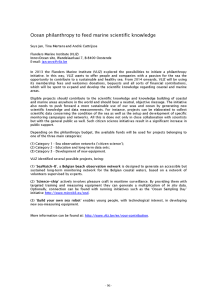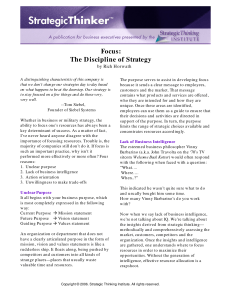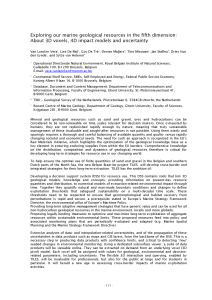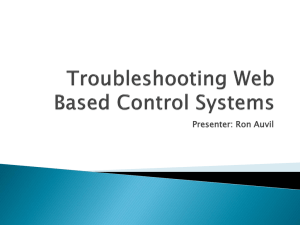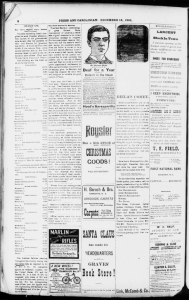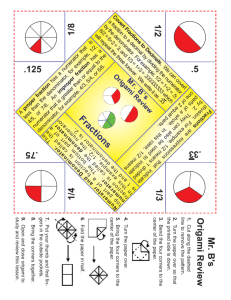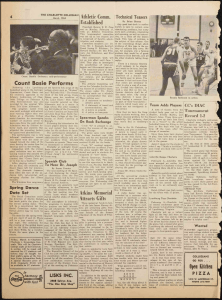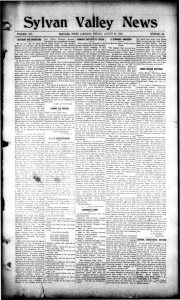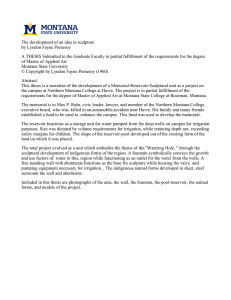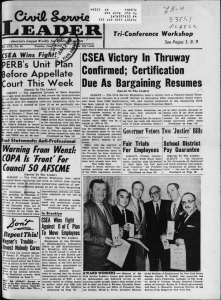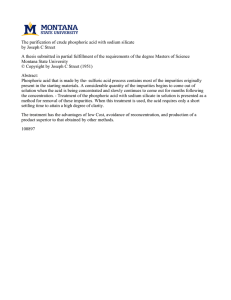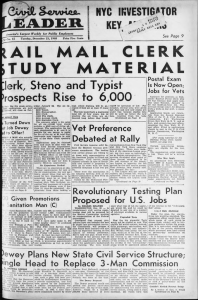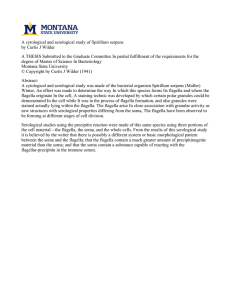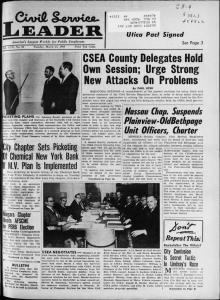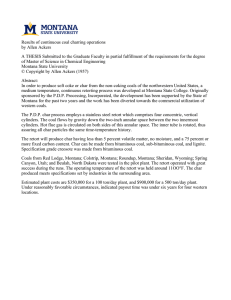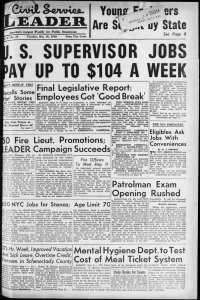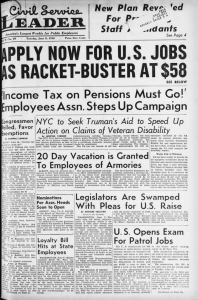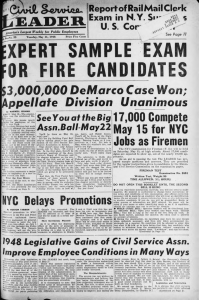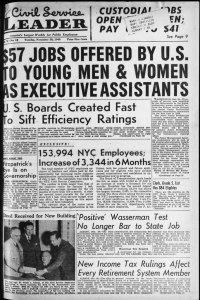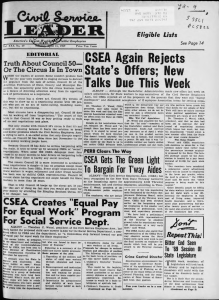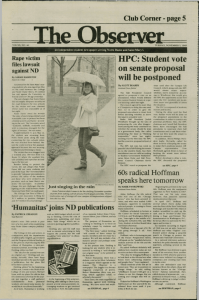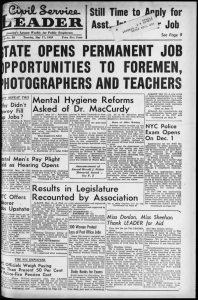operational research and elements of learning theory
advertisement
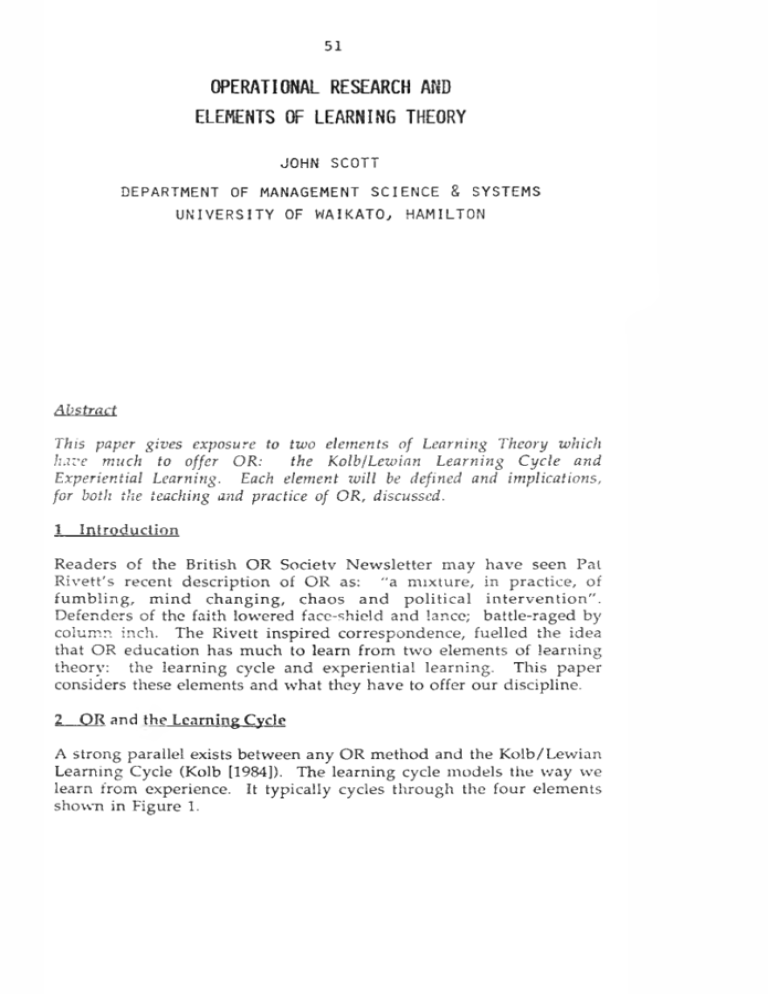
51 OPERATIONAL RESEARCH AND ELEMENTS OF LEARNING THEORY JOHN SCOTT DEPARTMENT OF MANAGEMENT SCIENCE & SYSTEMS UNIVERSITY OF WAIKATO, HAMILTON A bstract This p ap er g i v e s ex po sure to t w o el e m e n t s of L earn in g T he o ry wh ich h a v e m u ch to offer O R : th e K olb /L ezvia n L e a r n i n g C y c l e a n d E x p e rien tia l Lea rn ing. Each elem en t xvill be defin ed an d i m p lic a tio n s , for both the teaching an d practic e of O R , discussed . 1 I n t r o d u c t io n R ead ers of th e B ritish O R Society N e w sle tte r m ay h av e seen P al R iv e tt's recen t d esc rip tio n of O R as: “a m ix tu re , in p rac tic e , of f u m b lin g , m in d c h a n g in g , c h a o s a n d p o litic a l in te rv e n tio n " . D efenders of the faith low ered face-shield an d lance; b attle-rag ed by colum n inch. The R ivett in sp ire d co rresp o n d e n c e , fu elled th e idea th at OR ed u catio n has m uch to learn from tw o elem en ts of le arn in g theory: th e le arn in g cycle an d e x p e rie n tia l learn in g . T his p a p e r considers these elem ents an d w h at they h av e to offer o u r discipline. 2 O R a n d th e L e a rn in g C y cle A stro n g parallel exists betw een any OR m eth o d and the K o lb /L ew ian L earning Cycle (Kolb [1984]). The learn in g cycle m o d els the w ay w e learn from experience. It typically cycles th ro u g h the fo u r elem en ts show n in Figure 1. 52 Figure 1: T he K olb/L ew ian L earning Cycle T he cycle is n o t u n i-d ire c tio n a l, m ay b e e n te re d a n y w h e re , a n d o v erlaid w ith an y OR m eth o d o lo g y . For instance, the 'h a rd ' system s ap p ro ach elem en ts of : P roblem Id en tificatio n System D escription M odel B uilding T estin g ( w ith "Experience" —> "Reflect" ( "Reflect" ) ( "C onceptualize" ) ( "Experim ent" ) ) Im p le m e n ta tio n (w ith "E xperim ent" —> "E xperience") The full cycle is n o w often seen as fu n d a m e n ta l to effective learning, suggesting, th at if an y OR applicatio n is a learning experience for those a s s o c ia te d w ith it, th e n th e cycle m ig h t u n d e r p in a n y OR m eth o d o lo g y . In d eed , it is h ig h ly likely th a t it is the learn in g cycle th a t h as b een u se d w h e n a n ew , o r re fin e d , OR m eth o d o lo g y is dev eloped. A refin ed m eth o d o lo g y w o u ld seem to com e through: w o rk in g w ith OR, reflecting on th e experience, m o d ify in g th e m e th o d o lo g y , an d ex p erim en tin g w ith it. ("Experience") ("Reflect") ("C onceptualize") ("E xp erim en t") T he le a rn in g cycle, th erefo re, could be seen as fu n d a m e n tal to OR alm o st th e m eta-m eth odology. 53 The lea rn in g c y c le is a ls o th e b a sis for K o lb 's L e a r n in g S ty le In v e n to r y , (Kolb [1984, p 6 8 ]). T h e le a r n in g s t y le in v e n to r y m e a s u r e s a p e r s o n 's relative e m p h a s is o n e a c h o f th e fo u r m o d e s o f th e le a r n in g p r o c e s s sh o w n in F ig u r e 1. C h a r a c te r is tic s o f p e o p le in e a c h o f th e fo u r learning m o d e s are as fo llo w s: An orientation towards Concrete Experience, to being involved in experiences, shows up in people who enjoy, and are good at, relating to others. They are often good intuitive decision makers and function well in unstructured situations. An orientation towards Reflective Observation, to careful observation and impartial description, shows up in people who enjoy intuiting the meaning of situations and ideas, and are good at seeing their implications. They are gooa at seeing tningi. from different points of view, showing a value for patience, impartiality and considered, thoughtful judgement. An orientation towards Abstract Conceptualisation, focuses on using logic, ideas, and conccpts. It emphasizes thinking, as opposed to feeling, and shows up in people who are good at systematic planning, manipulation of abstract symbols, and quantitative analysis. An orientation towards Active Experimentation, focuses on actively influencing people and changing situations, on a pragmatic concern for what works. People here enjoy, and are good at, getting things accomplished, even if that requires taking risks. Knowledge of probable client learning style, an d h o w to relate to it, is useful, for instance, in p re p a rin g a re p o rt or p re se n ta tio n , d esig n in g user interfaces w ith a m odel or MIS system . K n o w led g e of learn in g styles is in v alu ab le w h en try in g to p u t to g e th e r a b alan c ed project team; one capable of d iv e rg en t th o u g h t a n d w id e -ran g in g id e as, as well as convincing o th ers of th eir relevance; one p o ssessin g skills to cover all stages of the project. There has been extensive w o rk on learn in g styles a n d th eir use, b oth in the w o rk p la c e a n d th e cla ssro o m . A re c e n t (u n p u b lis h e d ) bibliography contained 280 references, covering the last 15 years. Each sta g e o f th e le a r n in g c y c le re q u ir e s d iffe r e n t te c h n iq u e s (Packham [1984]). For in s t a n c e : In m oving from "E xperience" to "Reflect", w e n eed to b u ild a 'rich ' picture of the situation reg ard e d as problem atic, to avoid arriv in g at a prem ature p ro b lem detm itio n . T herefore d iv erg e n ce tech n iq u es *rn useful such as: b ra in sto r m in g , s y n e c tic s , r e str u c tu r in g te c h n iq u e s , la tera l th in k in g , a c tiv e lis t e n in g , c o n s c io u s n e s s -r a .o m g as w e ll as th e m o r e fo rm a l s k ills of: 54 in terv iew in g , stru ctu red de-briefing, brow sin g literatu re an d in fo rm a tio n searching. A t so m e p o in t w e m o v e from "R eflect" to "C o n c e p tu a liz e " an d analysis of the p ictu re begins. H ere w e need to detach o urselves from the situ atio n ; to create p a tte rn s a n d linkages w hich begin to p ro v id e insights into the problem . This requires m eth o d s of a ss im ila tio n ; like: reflection-in-action, force-field analysis, influence diag ram s, m in d -m a p p in g , root definitions, conceptual m o d ellin g and h y p o th esis form ing. A re these tech n iq u es likely to be useful w ithin OR? To an sw er this, o n e n eeds to ask h o w m uch an OR project w ishes to offer the client a creative set of altern ativ es, for m an y of th e m eth o d s listed are closely allied to creativ e th inking: to offering n ew holes as real altern ativ es to d ig g in g a sid e tu n n e l to the c u rre n t one. It is a p p a re n t th at d e lib e ra te a n d in fo rm e d , ra th e r th a n in tu itiv e , u se of c re ativ e techniques increases th eir expected benefit. H o w can all th e s e sk ills be d e v e lo p e d w ith in an a lre a d y full cu rricu lu m ? It is n o t su g g ested th a t they are all sep ara te ly tau g h t, r a th e r th a t s tu d e n ts a re o ffe re d a le a rn in g e n v iro n m e n t th a t en c o u ra g e s th e ir d isco v ery , as, a n d w h e n , th ey are re q u ire d . This req u ires a ch an g e in th e process of learning; to one m ore in tu n e w ith all the stages of the learning cycle; to Experiential L earning. 3 OR and Experiential Learning (EL) A su m m ary of th o u g h ts in this area a p p eared in the first N ZO R N ew sletter of the n ew year. For com pleteness, som e are rep eated here: EL is a term com m only reserv ed for learn in g activities w hich involve th e w h o le p erso n ; w h ich fully engage th e p articip an ts. It is learn in g w h ich arises from the first h a n d experience of the learner (eg in w ork place an d w o rk sh o p activities, sim u latio n s an d role plays), in contrast to second h a n d le arn in g w hich takes place in trad itio n al classroom s (eg th e le c tu re ). E x p e rie n tia l e d u c a tio n h as th re e im p o rta n t am bitions, or d im ensions; Boud [1988]: the in v o lv em e n t of the w hole s tu d e n t th e co rresp o n d en ce of a good learn in g en v iro n m en t w ith a real e n v ir o n m e n t learn er control over the learn in g experience 55 EL is n o t an end in itself. The th ree d im en sio n s su g g est altern ativ es to T ra d itio n a l T eaching M e th o d s, b u ilt a ro u n d m o re activ e, less passive stu d e n t involvem ent. It n e e d n o t be a case of o n e or the other; the o p p o rtu n ity exists to mix a n d m atch EL w ith m o re d idactic m ethods, to suit the course objectives. To ru n a course along EL lines m ean s p lacin g m o re of th e o w n e rsh ip for the course w ith the stu d en ts. D eciding co n ten t is a joint decision. A ssessm ent is agreed to in co njunction w ith decisions on p ro g ram m e content a n d often includes a c o m p o n en t of self-assessm ent. Lectures and form al presentation m ay be given if th e class w ish it, b u t inform al and spontaneous m eetings are m o re th e norm . C o n tin u o u s atten tio n is given to process, w ith reflection on th e process bein g stan d ard . The te a c h e r's role is not o n e of o p tin g o u t, b u t ra th e r o f c o n sta n t facilitation. 4 Conclusions In conclusion, w hat do the L earning Cycle, a n d EL, have to offer OR? The L earning C ycle offers OR a p o ssib le m e ta -m e th o d o lo g y ; o n e w hich u n d e rp in s any OR m eth o d o lo g y . T he allied skills en co u rag e creative pro blem solving. A cco m p an y in g th e L earn in g C ycle is the L earning Stvle Invento ry . K n o w le d g e o f le a rn in g sty les h elp s an academ ic p lan a course m ore su ited to the sLudents u n d e r th eir care; an OR p ractitio n er to b u ild a n d p re s e n t sy stem s m o re in h arm o n y w ith client personality traits. EL offers OR at least three things: Firstly, it offers a refresh in g set of w ell-fo u n d ed concepts an d id e a s fo r in jec tin g m o re e n e rg y an d relevance in to o u r courses. The refe re n c e d lite ra tu re offers u seful advice on all of the following: autonom ous, or self-directed, learn in g m eth o d s collaborative learning counselling skills g ro u p processes and in terd ep en d en ce in te r d is c ip lin a r y s tu d y learning contracts learning styles the learning cycle paired, or one-to-one, learning peer su p p o rt and peer assessm ent problem -based learning self-assessm ent. 56 S econdly, th e in creasin g ra te of change in, an d a ro u n d th e O R /M S discipline, an d th e fact th at m ost of u s now change career p ath s (not just jobs) th ree tim es in a w o rk in g lifetim e, is fu rth e r justification for co n sid erin g EL, for w ith EL com es increacpd en co u rag em en t to le a rn h o w to learn . If w e do no t have th at ability, h o w d o w e efficiently learn n ew form s of k n o w led g e or how to use th at k now ledge; h o w do w e 'k eep u p '? Finally, EL offers ideas on how the op eratin g skills (eg co m m unication skills) re q u ire d of a p ractitio n er can be in tro d u ced into the classroom . T hese skills, w h ich m u st accom pany any O R /M S process, are seen as fu n d a m e n ta l to su cc e ssfu l p rac tic e, b u t are o fte n g iv en c u rso ry u c a u n e n t b ecau se of the d ifficulty in teaching them . It is m y belief th a t th e fu n d a m e n ta l co n te n t of o u r courses is n ear e n o u g h for the m o m en t, b u t th e process w e u se to teach the content sh o u ld change. This sh o u ld b etter reflect n o t only learning theory, b u t also the process of O R /M S . T herefore w h y no t explain the process to the stu d en ts and then w o rk w ith th at to tackle the tasks of build in g an d carrying o u t the course together. References [1] B oud D (1988) W h at is Experiential Learning, Ch 1 in H iggs J (ed) Experience-based Learning, A u stralian C onsortium on E xperiential E ducation, Sydney. [2] Kolb D (1984) Experiential Learning: Experience as the Source of Learning and Development, Prentice-H all, N ew Jersey. [3] P ackham R, R oberts R a n d B aw den R (1989) O u r faculty goes experien tial, in W eil S W and McGill I Making Sense of Experiential Learning, O pen U niversity Press: England.
